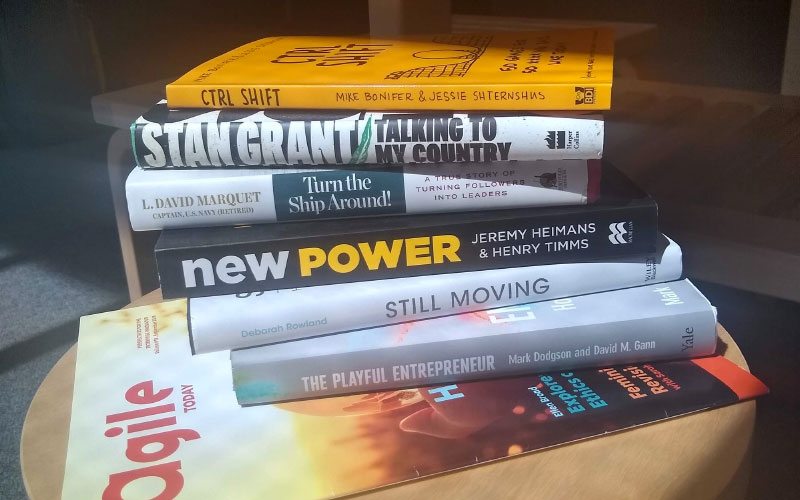
The AgileAus Holiday Reading Guide
There’s no better time than the holiday break to kick back and relax with a book! Whether you’re looking for poolside reads, inspiring stories, or books to help you step into 2019 with your best foot forward — we have you covered! Plus, check out some recommended reads from members of the AgileAus community.
Add these books to your holiday reading and gift lists!
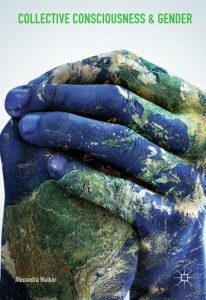
Collective Consciousness and Gender
Ali Walker (Palgrave Macmillan, 2018)
In this study of collective consciousness in international law, Dr Ali Walker explores the widespread implications of unconscious, gendered role-playing. Ali contends that simply affording women the same legal rights as men has not created gender balance. The book explores how the feminine traits that exist in all individuals should be maximised, and used to critique the masculine structures within international law.
Ali Walker will speak and host workshops at AgileAus19, teaching attendees to read and lead the room.
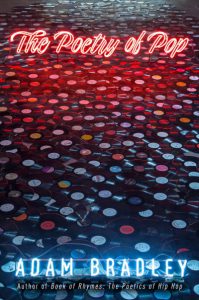
The Poetry of Pop
Adam Bradley (Yale University Press, 2017)
Can pop lyrics be considered poetry? Adam Bradley takes a deep look at the poetic artistry of pop music, moving his often-autobiographical analysis across early 20th Century Broadway show tunes, mid century rock and roll, and today’s chart-toppers. The book proves that the most powerful poetry is often found where we least expect it.
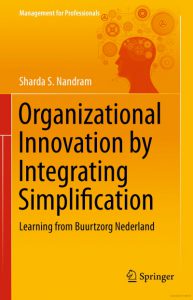
Organizational Innovation by Integrating Simplification
Sharda Nandram (Springer International Publishing, 2014)
Based on a study of Buurtzorg Nederland, a Dutch-based homecare organisation that gives full autonomy to its nurses, Sharda Nandram dives deep into the theories underpinning this radical type of leadership. The book contains a discussion of how Buurtzorg’s flat-structured hierarchy and self-functioning teams can be recreated in different industries.
Sharda Nandram will share more on how she’s created an organisational culture that makes employees feel at ‘Home @ Work’ at AgileAus19.
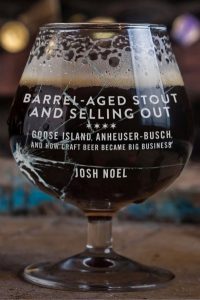
Barrel-Aged Stout and Selling Out: Goose Island, Anheuser-Busch, and How Craft Beer Became Big Business
Josh Noel (Chicago Review Press, 2018)
All it takes is one move to shake up a whole industry. This is what happened when Chicago’s beloved, family-owned craft brewery, Goose Island, was sold off to the world’s biggest beer company. The 2011 purchase by the maker of Budweiser pushed craft beer out of its niche into an unanticipated mainstream hit. Josh Noel gives a fascinating account of how an artisanal industry found its feet in the big leagues. (Can be enjoyed with a beverage of your choice!)
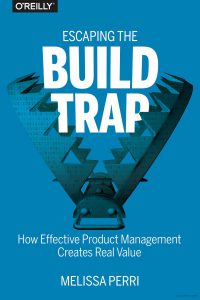
Escaping the Build Trap: How Effective Product Management Creates Real Value
Melissa Perri (John Wiley & Sons, 2018)
To remain innovative in today’s market, companies have to adopt a culture of learning and customer-centric practices that are focused on outcomes rather than outputs. Melissa Perri provides a practical toolkit designed for companies big and small, giving product managers strategies for using communication and collaboration to overcome product development roadblocks. In fact, Melissa was working on this book when she came to present at AgileAus17!
![]()
Bad Blood: Secrets and Lies in a Silicon Valley Startup
John Carreyrou (Knopf, 2018)
The founder of Theranos, Elizabeth Holmes, committed one of Silicon Valley’s all-time biggest scams. The blood-testing startup was a US$9 billion Silicon Valley unicorn, until it was exposed that their groundbreaking medical device didn’t even work. John Carreyrou’s up-close account of the saga proves truth is stranger than fiction.
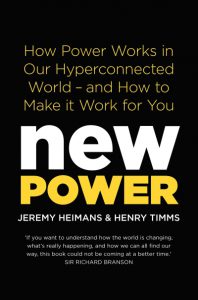
New Power
Jeremy Heimans and Henry Timms (Macmillan, 2018)
The Guardian has called its authors “the baby-faced wunderkinds of digital activism.” In New Power, Australian Jeremy Heimans and Brit Henry Timms take a look at the great power forces of our connected age; assessing why some ideas take off and others simply flop. Covering phenomena such as the rise of the mega-platform (think: Facebook and Uber), the unexpected election of Trump and social movements like #BlackLivesMatter, the book helps us understand the new forces of power shaping our lives.
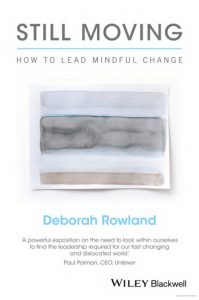
Still Moving: How to Lead Mindful Change
Deborah Rowland (Wiley Blackwell, 2017)
In a climate where entire systems and organisations are experiencing disruptive change, Deborah Rowland’s Still Moving aims to give leaders the ‘inner’ and ‘outer’ skills necessary for survival. Focusing first on the ‘inner’, the book encourages leaders to commence their own mindfulness practice, then apply this mindful stance to create organisational change that remains sustainable even in time of turmoil. The book spans diverse subjects such as making disturbance your friend, the benefits of giving up control, and how online leadership development programs may be more effective than their offline counterparts. With autobiographical touches from Rowland’s personal and professional life and poetic references scattered throughout, the text is a refreshing look at contemporary leadership.
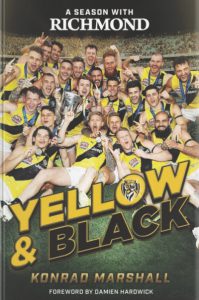
Yellow & Black: A Season with Richmond
Konrad Marshall (The Slattery Media Group, 2017)
Fairfax Media writer Konrad Marshall documents the highs and lows of the Richmond Football Club through the 2017 season. The book looks into all areas of the club, including a detailed description of Emma Murray’s work with players to implement her mindfulness and meditation approach.
Emma Murray will be joining us as a speaker at AgileAus19, giving us a truly unique insight into the concept of mindset.
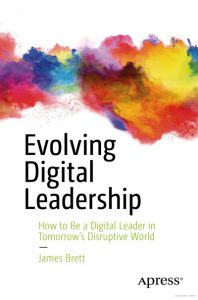
Evolving Digital Leadership: How to Be a Digital Leader in Tomorrow’s Disruptive World
James Brett (Apress, 2018)
To be an effective digital leader, you need to constantly evolve to achieve sustained success. This isn’t a generic leadership book; it’s one designed specifically for the “complicated, complex and chaotic” conditions under which technologists work.
In Evolving Digital Leadership, James Brett shows how digital leaders must position themselves at the forefront of new waves of change: creating new markets and transforming traditional ones. The book contains a four-step process to help you move through adversity, drive disruption, and unlock your leadership potential, combined with plenty of practical strategies and tools.
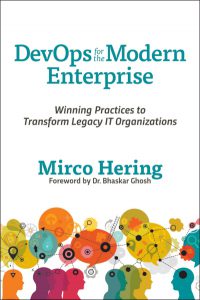
DevOps For The Modern Enterprise: Winning Practices to Transform Legacy IT Organizations
Mirco Hering (IT Revolution Press, 2018)
“One of the most rewarding things in my career has been the search to find the most efficient way to deliver meaningful projects and to get as many people as possible to do the same… I don’t have lofty goals of changing the world, but I think everyone deserves to enjoy his or her work. And when workers enjoy what they do, good outcomes are inevitable.” Mirco Hering provides a comprehensive roadmap for transformation in the IT industry, supported by Agile, DevOps and Lean principles.
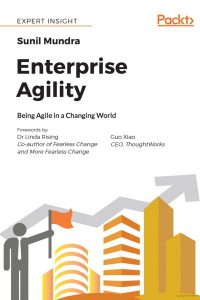
Enterprise Agility: Being Agile in a Changing World
Sunil Mundra (Packt Publishing, 2018)
ThoughtWorks Principal Consultant Sunil Mundra lays out practical advice for using Enterprise Agility to respond and adapt in our rapidly changing business environment. Mundra draws parallels between the principles of Enterprise Agility and the key characteristics of living systems which enable them to deal with change. Like in a living organism, the most important things to focus on in an organisation are the overall health of its body (culture, mindset, and leadership) and the health of its various organs (people, process, governance, structure, technology, and customers). Mundra offers actionable guidelines for creating organisations that not only survive but thrive on change.
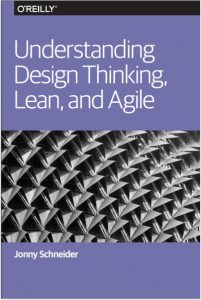
Understanding Design Thinking, Lean, and Agile
Jonny Schneider (O’Reilly, 2017)
In this free e-book, Jonny Schneider helps makes sense of the many, and often bewildering, array of processes, tools, and methods that come hand-in-hand with implementing Agile, Lean and Design Thinking into your organisation. Find out what the best approach is for you and your organisation, and learn what techniques you should implement to get the outcomes you desire.
Jonny Schneider will lead a half-day afternoon workshop in Sydney on 24 June 2019 as part of AgileAus19. The workshop focuses on rapid experimentation for product managers, helping you embrace a learning mindset and discover how to use experiments to test assumptions.
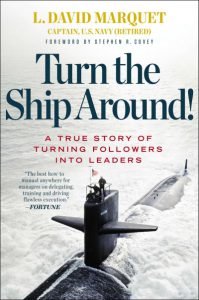
Turn the Ship Around! A True Story of Turning Followers into Leaders
David Marquet (Penguin, 2012)
Retired U.S. Navy Captain David Marquet draws on his leadership experiences in a high-stress environment to inform this book on leadership strategy. When he stepped into the captainship role of nuclear submarine USS Santa Fe, Marquet went about his job like he always had: giving out strict orders, and cutting down the margin of error so his team of sailors remained safe. Everybody was following orders, but there was one problem. The ship had the worst retention and morale in the fleet.
To test his crew, Marquet gave them a clearly impossible order, which the team attempted to followed anyway. Their response when he asked why everyone adhered to the ridiculous order – “because you told me to” – made Marquet aware of how detrimental and potentially dangerous the Navy’s rigid ‘leader-follower’ dichotomy really was. This is a story of how Marquet “turned the ship around” to become the most successful in the fleet; all through affording his crew greater autonomy and making them assume responsibility for their actions.
For practical strategies, be sure to check out Marquet’s subsequent book, Turn Your Ship Around! A Workbook for Implementing Intent-Based Leadership in Your Organization (Penguin, 2015).
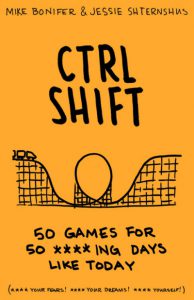
CTRL SHIFT: 50 Games for 50 ****ing Days Like Today
Mike Bonifer and Jessie Shternshus (BDI Publishers, 2015)
“**** your fears! **** your dreams! *** yourself!”, the cover of CTRL SHIFT provocatively reads. Those who attended AgileAus18 will no doubt be familiar with keynote speaker Jessie Shternshus’ philosophy, which promotes a child-like embrace of play to ‘unlearn’ and break out of established habits that may be holding us back.
In CTRL SHIFT, Shternshus and Bonifer make this process of play a whole lot easier, providing 50 experiential games tailored to the type of day you’re having. Find fun exercises to help you make it through “The Day You’re Stuck”, “The Day You Launch”, “The Day the Competition Makes a Move”, “The Day You Don’t Give a Damn”, “The Day You Say Goodbye”, and more. Game on!
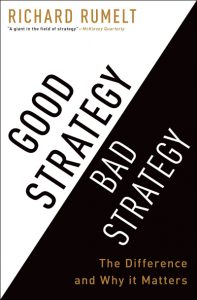
Good Strategy/Bad Strategy: The Difference and Why It Matters
Richard Rumelt (Deckle Edge, 2011)
Here, Richard Rumelt defines the distinction between “good strategy” and “bad strategy”. Too often, he argues, meaningless slogans, buzzwords and financial goals muddle together to distract organisations from identifying their true strategic aims. A “good strategy” is one that specifically addresses the obstacles that are getting in the way of an organisation’s progress and outlines a plan for overcoming these. For Rumelt, a successful strategy ultimately comes from insight. He looks at examples from corporates, non-profits and the military, providing readers with a broad range of tips to expand their concept of strategic insight.
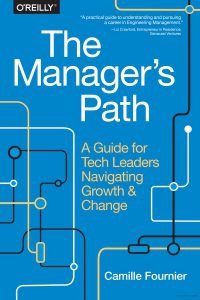
The Manager’s Path: A Guide for Tech Leaders Navigating Growth and Change
Camille Fournier (O’Reilly, 2017)
Broken into four parts, The Manager’s Path calls on Camille Fournier’s experience in tech leadership to explain how we have to change our leadership styles to adapt to this new wave. While the first part of the text covers how to be managed and what to expect from a manager, the book then goes on to explain how things like people management, team management, mentoring and senior leadership ought to be adjusted to suit the specific needs of a tech company. Fournier offers a practical playbook for tech leaders, guiding them on how to respond to the specific challenges this role presents.
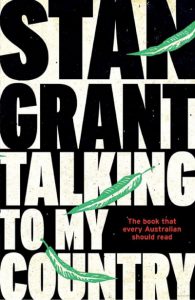
Talking To My Country
Stan Grant (HarperCollins, 2016)
“These are the things I want to say to you… things I have held inside or even worse run from”, Stan Grant’s book begins. Spurred by the booing of Adam Goodes during 2015’s AFL season, Grant reflects on his own identity as an Indigenous Australian. Drawing on his unique perspectives gathered from working in Asia, the Middle East, Europe and Africa, the esteemed journalist writes powerfully about the intersection of race and education. Stan Grant delivered a rousing address at the AgileAus18 Tenth Anniversary Dinner.
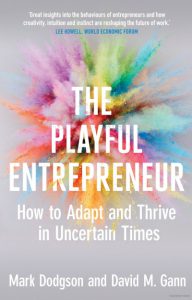
The Playful Entrepreneur: How to Adapt and Thrive in Uncertain Times
Mark Dodgson and David Gann (Yale University Press, 2018)
“There are two children playing… How different their behaviour is from what is expected of her at work. They are so uninhibited and in touch with their essential humanity. They are restlessly curious and energetic, chasing each other, falling down, picking themselves up, dusting themselves off… How have things come to this? She was so excited to get this job.”
Dodgson and Gann believe that, for many of us, the above story will hit too close to home. In The Playful Entrepreneur, they present readers with an alternative: a work life that’s energising, fulfilling and fun.
Throughout the text, Dodgson and Gann trace the historical relationship between work, knowledge and technological advancement. They look to David Hume’s 1742 History of England, where a progressive society is defined as one in which “industry, knowledge and humanity are linked together by an indissoluble chain.” Hume refers to this ideal as a “luxurious society”, where knowledge flows easily between science and the arts.
However, as Dodgson and Gann contend, this ideal seems to have been abandoned long ago. Moving from the wariness of technology cultivated during the industrial age to the Japanese phenomenon of karōshi (death by overwork), the authors locate the origins of contemporary workplace dissatisfaction. From there, they make the case for re-centring play in our lives, exploring behaviours that can encourage and guide play in the workplace. Play is, as Dodgson and Gann find, a quality essential to success in today’s conditions of uncertainty.
Keen to learn more about how play can take you further? Mark Dodgson will share his insights at AgileAus19.
Books that change the way you think
In preparation for AgileAus19, which pivots on the theme of seeking the Agile Mindset, we began to wonder what books could really alter one’s mindset. Below, AgileAus community members share books from across all genres that have changed the way they think.
Abigail Thomas (General Manager, SBS On Demand)
Abigail spoke at the inaugural AgileAus Better Worlds Conference, sharing her experiences at SBS and at non-profit organisation OneStep.
When it comes to books that have changed the way I think, I’d probably nominate Mindset: The New Psychology of Success by Carol Dweck. It was a key book I read a few years ago which really made me think differently and embrace the growth mindset. Carol sets out the research really clearly and compellingly. I’ve used it with my teams, with my kids and on myself too!
Herry Wiputra (Chief Product and Technology Officer, hipages)
Herry will share his insights as a guestspeaker at AgileAus19.
Here are four books that have really shaped my thinking:
- Turn Your Ship Around! A Workbook for Implementing Intent-Based Leadership in Your Organization by David Marquet.
- The Toyota Way by Jeffrey Liker.
- Drive: The Surprising Truth About What Motivates Us by Dan Pink.
- The Goal by Eliyahu Goldratt.
Nish Mahanty (Head of Development, irexchange.com)
Below is a leadership book list that I’ve put together for the team.
- Leadership and Self Deception: Getting Out of The Box by The Arbinger Institute.
- The Secrets of Consulting: A Guide to Giving and Getting Advice Successfully by Gerald Weinberg.
- The Five Dysfunctions of a Team: A Leadership Fable by Patrick Lencioni.
- Crucial Conversations: Tools for Talking When Stakes Are High by Kerry Patterson, Joseph Grenny, Ron McMillan and Al Switzle.
- Turn the Ship Around! A True Story of Turning Followers into Leaders by David Marquet.
- The Responsibility Process: Unlocking Your Natural Ability to Live and Lead with Power by Christopher Avery.
All these books have helped further my career. However, of this list, Leadership and Self Deception has had the biggest personal impact on my life and relationships.
Erica Smith (CTO, StarRez)
Erica will be speaking at AgileAus19.
An oldie but a goodie is Freakonomics by Steven Levitt. Not so much for the quirky stories, but for the fact that it makes you really look at a situation and consider all the factors which have gone into it. It’s an incredibly powerful technique when applied to teams and businesses and technology. You have recurring performance problems in your software? Step back from the code. What are your people motivated by? What are their driving forces? What do you reward, and what do you penalize? What things do your culture expressly value, and how do the people in your team in turn express those values?
Leaders aren’t there to fix code with a performance problem, they’re there to understand why the performance problem came into existence, and adjust the business in such a way that it is less likely to happen again in future. Understanding the intersection between economics and human psychology has provided me with some of the very best tools I have to do this, and Freakonomics is a very accessible way to ease yourself into this mode of thinking.
In a slightly more mainstream, business sense, I have a love/hate relationship with Hooked by Nir Eyal. It definitely changed the way I think, and it gave me a huge boost in my ability to work well with product managers and product specialists. It’s brilliant when it comes to building products which contribute to that ever-aspirational ‘engagement’ metric. The ‘hate’ part of the love/hate relationship comes from the fact that it is alarmingly like being given a loaded weapon. The potential to do harm based on the content of the book is pretty substantial, and it has absolutely already been used to do harm by unscrupulous folks.
If we’re not looking at books specifically targeted at IT businesses, I’d also add The Life You Can Save by Peter Singer. While I don’t always agree with his arguments, it does challenge a lot of our fluffy, feel-good assertions about how to do good in the world, and the difficult balance we are constantly making between self-interest and morality.
Sherif Mansour (Distinguished Product Manager, Atlassian)
There are quite a few books that have changed my thinking! However, here are the two main texts I ask all Product Managers to read:
- User Story Mapping: Discover the Whole Story, Build the Right Product by Jeff Patton. This book makes everyone who works in software rethink traditional ‘requirements’ and documents. It encourages us get back to the core problem – building a shared understanding of the customer within your team.
- The Hard Thing About Hard Things: Building a Business When There Are No Easy Answers by Ben Horowitz. Horowitz’s book contains all the difficult things technology teams need to consider when building a business or product. There are plenty of experiences to learn from in this book!
Leandro Pinter (Head of Software Engineering, Tyro Payments)
It’s hard to pick just one book that has changed my thinking, but a title that stands out is Reinventing Organizations: A Guide to Creating Organizations Inspired by the Next Stage of Human Consciousness by Frederic Laloux.
Sam Bowtell (Agile Practice Lead, Commonwealth Bank)
I’d recommend Solution-Focussed Coaching: A Manager’s Guide to Getting the Best from People by Jane Greene and Anthony Grant. It changed my leadership style, and now I teach others the same principles.
Jody Weir (Head of Agility, THE ICONIC)
Over the past year, the book that has most significantly changed the way I work and the impact I have on the people I work with is Sandy Mamoli and David Mole’s Creating Great Teams: How Self-Selection Lets People Excel. We have run Squad Self-Selection for the past two quarters in THE ICONIC Tech and it has been wildly successful.
Another book I would recommend, even though it’s not new, is Love Works: Seven Timeless Principles for Effective Leaders by Joel Manby. In this book, Joel talks about aligning your personal values to your work values and leadership style. It made me realise how important it was to be true to my values in both my personal and work life, and that those values didn’t need to be different. You can be an effective leader and still be compassionate and caring.
I’m sure others have recommended this, but Reinventing Organizations by Frederic Laloux was a game changer for me. It is one of the reasons I chose to work at THE ICONIC, as they are striving to be a Teal Organisation (they wouldn’t describe it in this way yet, though!).
Lani Beer (Innovator, King & Wood Mallesons)
Whilst there are plenty of books that have changed the way I think, here are my current favourites:
- The Advantage: Why Organisational Health Trumps Everything in Business by Patrick Lencioni helped me to consider how to align an entire organisation, enabling them to adapt and work in an Agile way. I’ve used this book to help me co-design new ways of working with executives.
- Turn Your Ship Around! by David Marquet, whose book and videos prompted me to frame the true role of a leader as being a servant leader to many other leaders.
- The Lean Startup by Eric Ries is a great read when working for a startup. It encourages reflection and helps you avoid making similar mistakes in your own workplace.
- Pivot: The Only Move That Matters Is Your Next One by Jenny Blake is a book I refer to when I am stuck – it’s great if you’re having a career crisis moment.
- Deep Work by Cal Newport taught me the importance of focus and how to stay on course in the world of ‘always on’!
- Smarter, Faster, Better by Charles Duhigg caught my eye, as who doesn’t want all three of these things! This book is all about how to think differently, which can then transform what you do.
- The Power Paradox by Dacher Keltner is useful when trying to influence the leadership of an organisation. It helps you consider how you might influence with impact and not evil!
Martha O’Sullivan (Head of IT – Trading and Supply Chain, Target)
Given it’s all about the mindset, I have been heavily focused on books that discuss how change impacts humans. These include:
- Lean Enterprise by Barry O’Reilly, Jez Humble, and Joanne Molesky.
- Creating Magic: 10 Common Sense Leadership Strategies from a Life at Disney by Lee Cockerell
- The Fourth Transformation: How Augmented Reality & Artificial Intelligence Will Change Everything by Robert Scoble and Shel Israel.
- Leading Change by John Kotter
And, more recently, I’ve enjoyed Amantha Imber’s The Creativity Formula. She provides some very interesting mechanisms to help us unlock a creative mindset and solve problems differently.
James Wright (Delivery Manager, SEEK)
I’d recommended Attached: The New Science of Adult Attachment and How It Can Help You Find – and Keep – Love by Amir Levine and Rachel Heller.
An Attachment Style is something we all have, but few people understand, and fewer know their own styles or those of their colleagues and partners. Our Attachment Style governs patterns of how we bond in adult relationships. Ostensibly, this book is about the most important adult relationship: your romantic partner. However, Attachment Styles bear out in modern high performing teams. These insights into yourself and others can be a gift if you’re looking to understand how to ensure teams bond, or why your team isn’t bonding. And, even if this doesn’t work for you, this book will be a fascinating insight into your own feelings and the behaviours of those closest to you.
Just as the concept of ‘Growth vs Fixed’ mindset came from bodies of psychology and paedology research which were applied to Agile and the world of work (as popularised by Carol Dweck), I believe we may see in the future a similar application of Attachment Styles to high performance teams.
Ideally, I would be recommending a book that focused exclusively on applying this research to non-romantic attachments, and thus, teams. But, in the absence of that, this text provides the reader with the concepts and framework for further learning and future application.
Some academic literature on the subject that gives weight to the assertion that Attachment Styles can be applied to workspaces includes:
- “Secure, Anxious, and Avoidant Attachment Styles at Work” by Hal Shorey, Psychology Today. [https://www.psychologytoday.com/au/blog/the-freedom-change/201807/secure-anxious-and-avoidant-attachment-styles-work]
- “Team Roles and Attachment Style in Team Work” by Klara Seitlova and Petra Dvořáčková, presented at The Knowledge for Market Use Conference 2016. [https://www.researchgate.net/publication/312934836_Team_Roles_and_Attachment_Style_in_Team_Work]
- “Adult Attachment Styles in the Workplace” by Peter Harms, Management Department Faculty Publications. [https://digitalcommons.unl.edu/cgi/viewcontent.cgi?article=1084&context=managementfacpub]

Stay in the loop
To receive updates about AgileAus and be subscribed to the mailing list, send us an email with your first name, last name and email address to signup@agileaustralia.com.au.
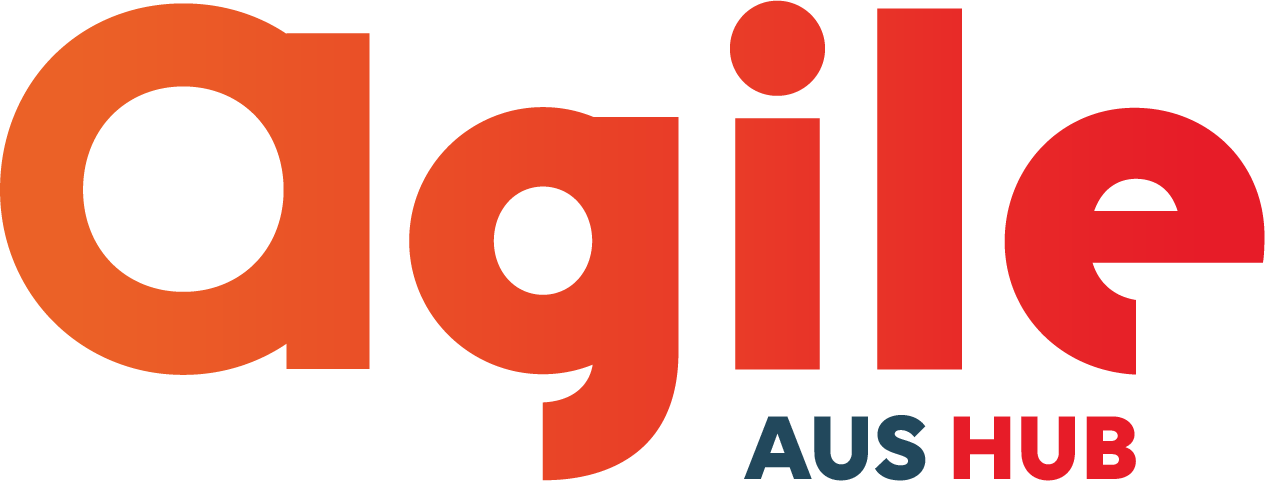
0 Comments